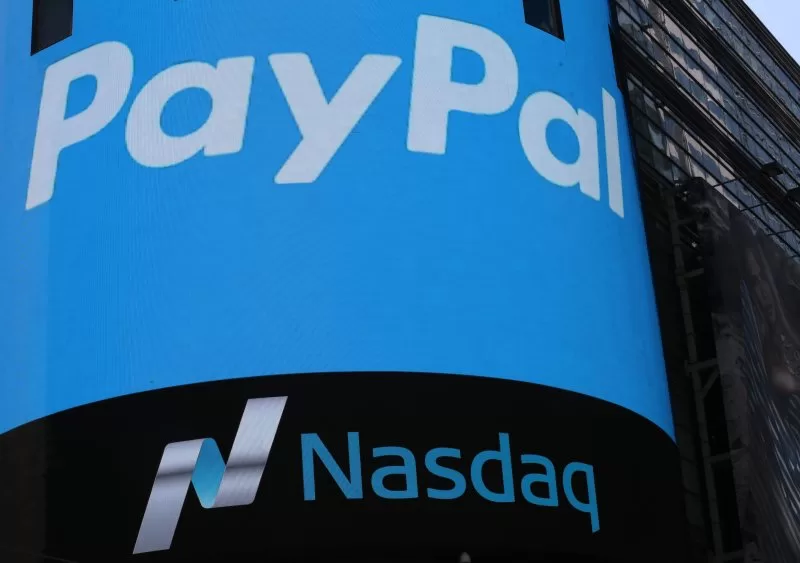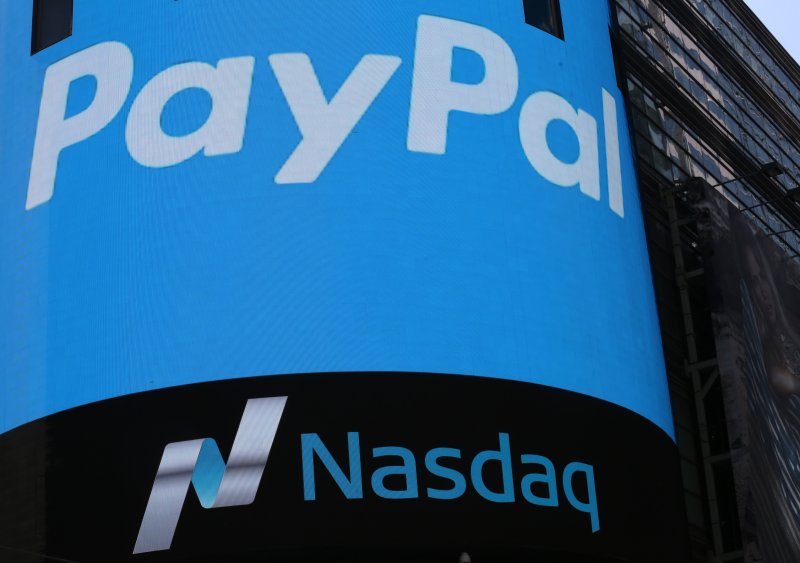A PayPal logo on the side of the Nasdaq digital board in Times Square in New York in 2015. File Photo by Andrew Gombert/EPA
Nov. 21 (UPI) — The Consumer Financial Protection Bureau will start overseeing non-bank companies that offer financial services, such as online payments and wallet apps, the agency announced Thursday.
The rule covers payment services from Apple, Google and Amazon, as well as firms including PayPal and Block, and will cover peer-to-peer services Venmo and Zelle.
The apps covered by the new rule process more than 13 billion consumer payments a year, the CFPB said in a statement.
“Digital payments have gone from novelty to necessity and our oversight must reflect this reality,” said CFPB Director Rohit Chopra. “The rule will help to protect consumer privacy, guard against fraud and prevent illegal account closures.”
Mega Tech companies such as Amazon and Apple, as well as large payment firms that handle at least 50 million transactions a year, will be required to adhere to the law, which is meant to ensure that they are held to the same laws that traditional banks and credit unions abide by, the CFPB said.
This new rule will also allow the CFPB to more closely monitor newer entities to the financial scene, such as the tech companies and payment apps, that have sidestepped much of the regulatory oversight by partnering with banks. The bureau said a year ago that it wanted to address that loophole.
The CFPB has said Americans are more frequently using apps as bank accounts, side stepping traditional banking institutions, making transactions and carrying balances in the apps rather than establishing traditional checking and savings accounts at brick and mortar institutions, then making their purchases and cash transfers with their cell phones.
“What began as a convenient alternative to cash has evolved into a critical financial tool, processing over a trillion dollars in payments between consumers and their friends, families, and businesses,” the bureau said.
Apps that work exclusively at one retailer, such as Starbucks or other single-source companies that offer an app, are exempt from the rule, which would take effect 30 days after its publication in the Federal Register.

